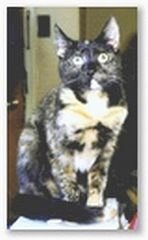When we are looking at programs of change we should be careful to distinguish between cleverness and wisdom.
Cleverness can be taught to anyone of reasonable mental abilities. For example most people can learn how to drive a car. A smaller group can learn how to drive a transport truck. Most people can learn basic math and English skills. There will be varying levels of cleverness between a high school student and a quantum physicist but the overall criteria is it can be learned; no experience required just practice.
Wisdom is the cognitive process of acquiring a skill or knowledge qualified by experience. The qualifying factors are first watchfulness: the process of paying close and continuous attention and second the ability to comprehend; to understand and profit from experience. This differs from cleverness in that it requires us to experience something, see the results, evaluate those results, and then modify our actions.
What does this have to do with programs of change?
When I was a practicing hypnotist and meeting a client the first time I would spend the first hour learning about the client, why they chose hypnosis, their expectations, what they had tried before with what results, determined how strongly they wanted the change to happen and most importantly uncovered and discussed any concerns or fears they had about hypnosis. In approximately 20% of the time I would tell them that continuing the program would be a waste of their time and money. I was clever enough to learn the technique of hypnosis but it was experience that taught me the wisdom of saying no when it was necessary.
There are a lot of programs for change offered on the web or in books. If the process does not evaluate your match with the program or include mentoring of some kind then it needs to be looked at carefully. Being fed a canned program will teach the techniques (cleverness) but only properly including evaluation of progress and the discussion and sharing of experiences will lead to wisdom and to an ongoing personal mastery of the change process.
Choose wisely.




5 conversations:
Exactly Peter, those snake-oil salesmen/women out there. There are a ton of them too. We have some dear friends and the husband is always trying to talk us into going to this program or that program. Well, he needs that feel good feeling he gets going to that stuff. We don't.
I see your point and had never thought about it in these terms, but there is a big difference. There are many things I can't do, but I could spend the time learning how to do them if I wished. Got it :)
Thank you comedy+ for your comment and illustration
indeed, choose wisely. and on a further note, if you are going to be a snake oil salesman, get in on the ground floor! ha ha, just kidding...
smiles, bee
Be first with the most eh Bee :)
According to me, one becomes wiser by facing experiences in life. For instance, a very clever person may lack the wisdom to make wise decisions. It is crucial to act clever in certain situation because one's wits can save even a life but one has to learn to become wise too. I doubt, a wise man making a foolish decision and a clever person behaving like a dumb. To sum up, both are very important qualities.
Post a Comment